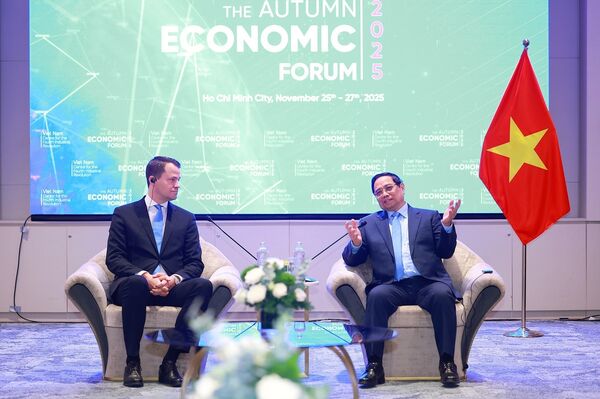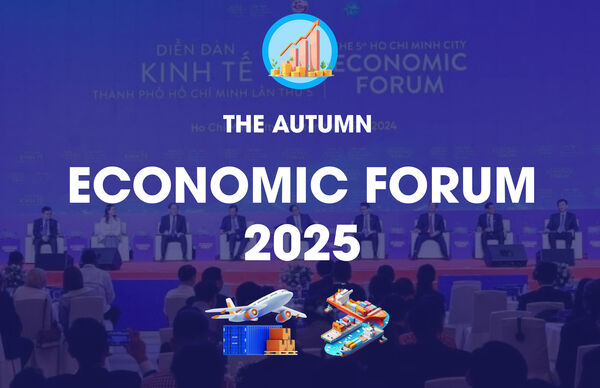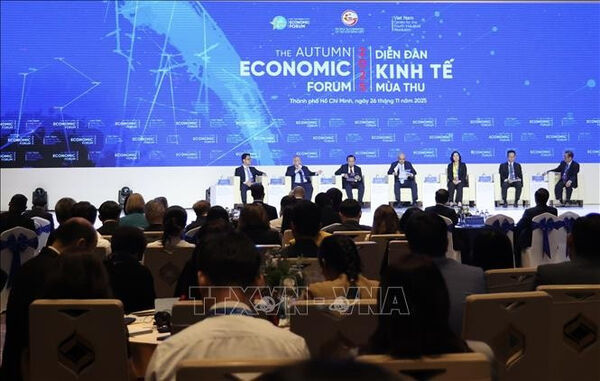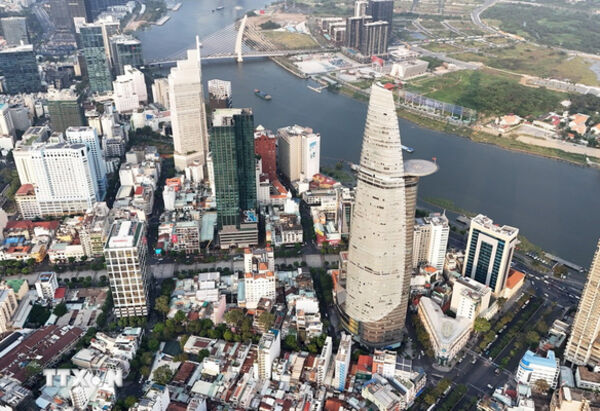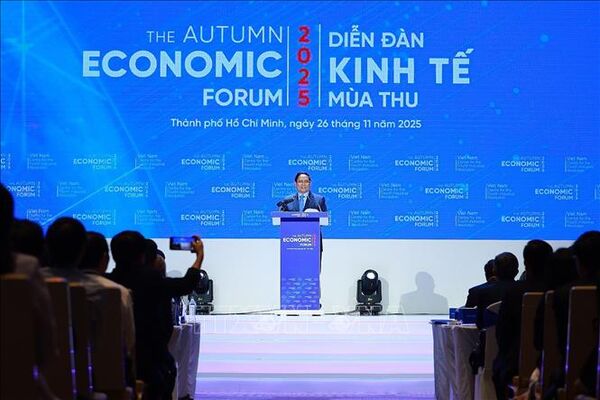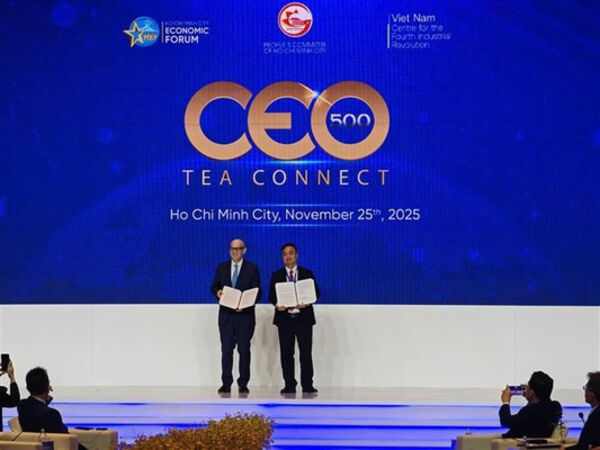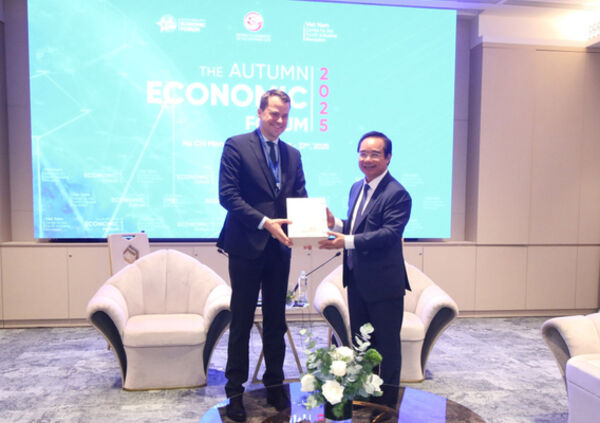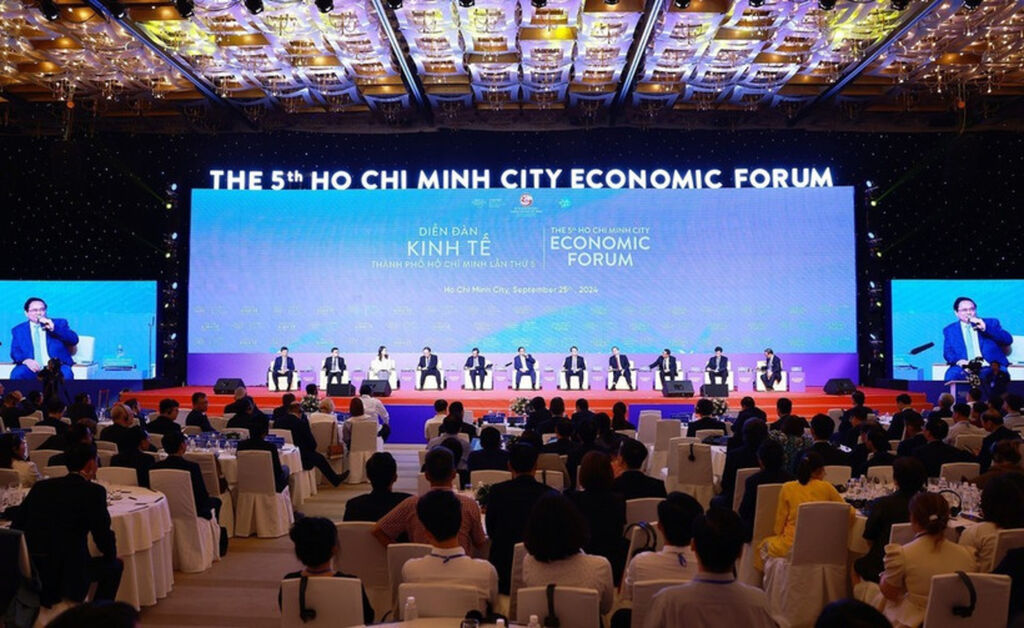 |
| At the 2025 Autumn Economic Forum in Ho Chi Minh City (Photo: VNA) |
HCM City (VNA) - Experts and businesses proposed solutions to enhance energy efficiency, reduce carbon emissions, and improve competitiveness to accelerate the green transition when participating in the 2025 Autumn Economic Forum, held in Ho Chi Minh City from November 25-27.
Pauline Tamesis, United Nations Resident Coordinator in Vietnam, emphasised the need to accelerate the green transition and promote digital technology as two drivers for inclusive and sustainable growth and enhanced resilience.
She highlighted that investing in renewable energy will help Vietnam achieve its clean energy goal, reduce CO2 emissions, improve air quality, and boost the economy. Additionally, the Gross Domestic Product (GDP) could increase by 3-4% compared to the baseline scenario in the early years, then maintain an additional growth rate of about 2% until 2030, and increase by an average of 3.5% after 2030, thanks to large investments for the 2031-2050 period. However, the significant capital requirements could lead to a sharp rise in public debt if heavily reliant on the budget, she noted.
Tamesis also cited a study by the UN, suggesting the maintenance of sufficient public spending on health care, education, and social welfare to support vulnerable groups, particularly in remote and ethnic minority areas, and regions frequently affected by natural disasters. In the long term, fiscal pressure will decrease as the economic and social benefits outweigh the initial investment costs, she added.
Long Guoqiang, Vice President of the Development Research Centre of the State Council of China, agreed that digital transformation and green transition are the two dominant trends shaping the future of global development. According to him, green transition is a comprehensive process of socio-economic transformation, requiring systematic planning and coordinated efforts across all sectors.
Reducing emissions should not come at the expense of economic growth. Instead, green transition must become a driving force for high-quality economic development. In the early stages, many emerging green technologies often face market barriers such as high costs and significant risks - factors that the market mechanism alone struggles to address. Therefore, effective state management is needed to complement the market, he advised.
Having been closely involved with Vietnam’s technology ecosystem for over 20 years, Thieu Phuong Nam, General Director of Qualcomm responsible for Vietnam, Thailand, Laos, and Cambodia, stated that to achieve the green transition and meet sustainable development goals, businesses must undergo digital transformation, with technology playing a key role.
Solutions such as AI and 5G have now matured enough for widespread application, he said, sharing that Qualcomm places particular emphasis on Edge AI technology, as it helps businesses reduce carbon emissions, optimise energy usage, and enhance operational efficiency, thus bringing them closer to sustainable goals.
According to Nam, there are three key factors to drive digital transformation. The first is digital infrastructure, particularly 5G. Countries, including Vietnam, need to accelerate the commercialisation and deployment of next-generation connectivity infrastructure, as this is an essential foundation for enterprises to apply smart solutions. Additionally, a supportive policy framework for new technologies such as AI, smart devices, and drones is necessary to create favourable conditions for innovation. In particular, specific incentive mechanisms are needed to make the green transition a competitive advantage, rather than merely a compliance obligation./.
